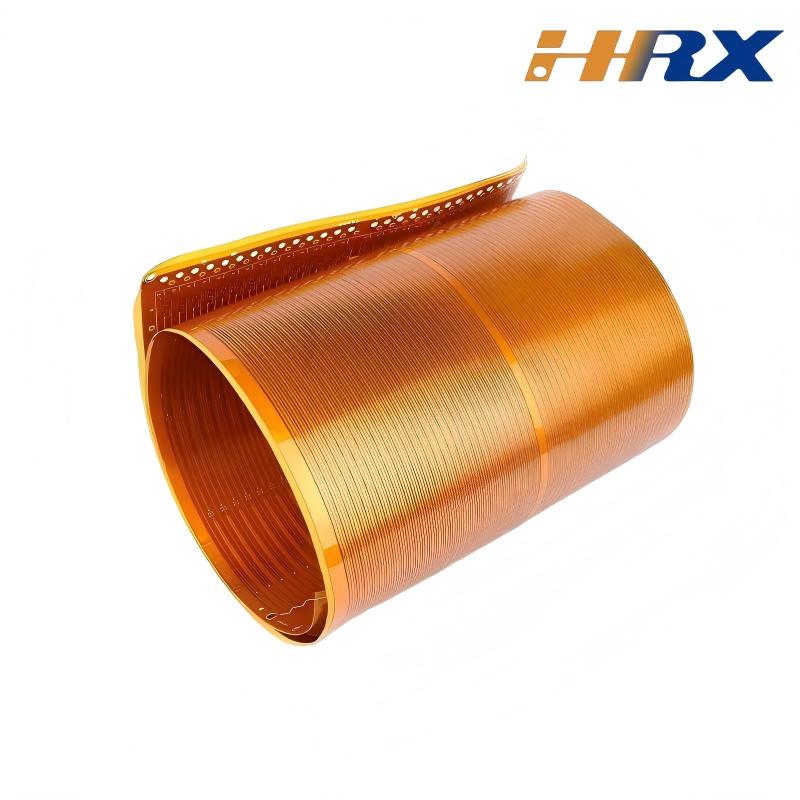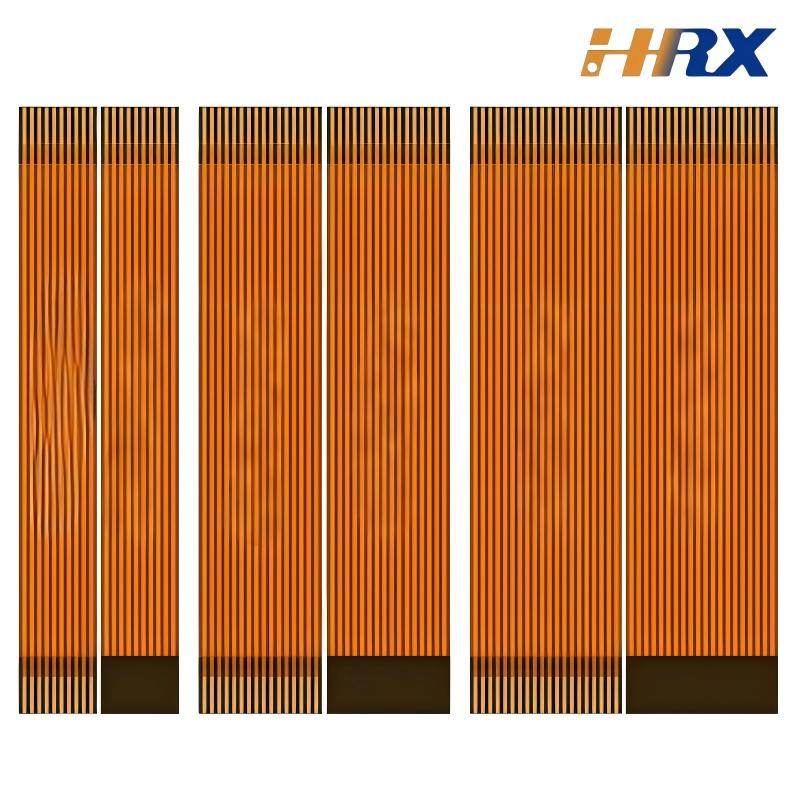Search
Tensile Strength of Flexible FPC Products: Applications, Key Roles, and Considerations
- Mar 08,2025
-
Share
Flexible Printed Circuit (FPC) products have emerged as integral components across diverse industries, owing to their inherent flexibility, lightweight construction, and high - density interconnect capabilities. Among the plethora of performance parameters that define the quality and reliability of FPCs, tensile strength stands out as a pivotal factor. As Shenzhen Huaruixin Electronics Co., Ltd., a vanguard in the design and manufacturing of FPCs, PCBs, and Rigid - Flex Printed Boards, we possess an in - depth understanding of the criticality of tensile strength in FPC applications. This blog delves into the various types of tensile strength applications in FPC products, their indispensable roles, and key considerations for optimal performance.
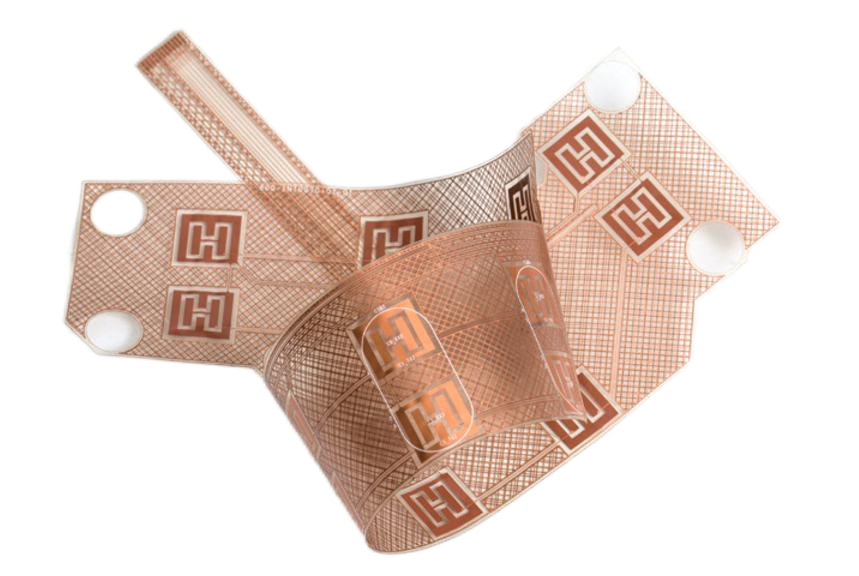
Types of Tensile Strength Applications in FPC Products
1. Consumer Electronics
Portable Devices: In the realm of smartphones, tablets, and wearables, FPCs serve as the linchpin for connecting multiple sub - assemblies. For instance, in foldable smartphones, the flexible display is connected to the mainboard via an FPC. This FPC must endure substantial tensile forces during the folding and unfolding operations. The Polyimide (PI) - based FPC, with its high tensile modulus, ensures that the electrical connection between the display driver IC and the mainboard remains intact, preventing any visual glitches or signal disruptions. In wearables like smartwatches, the FPC connecting the battery to the main circuit board is constantly subjected to bending as the user wears and adjusts the device. A high - tensile - strength FPC made of advanced materials can withstand these repeated mechanical stresses, ensuring uninterrupted power supply and device functionality.
Laptop Hinges: FPCs are deployed in laptop hinges to enable seamless communication between the display and the main body. Each time a laptop lid is opened or closed, the FPC experiences cyclic tensile and compressive forces. Our company, Shenzhen Huaruixin Electronics Co., Ltd., manufactures FPCs with optimized trace routing and stress - relief features. These design enhancements, combined with high - grade materials, allow the FPC to endure millions of hinge - cycle operations without degradation in electrical performance. The use of multi - layer FPCs with copper - clad laminates of appropriate thickness further enhances their tensile strength, ensuring long - term reliability in laptop applications.
2. Automotive Industry
Dashboard and Infotainment Systems: The automotive dashboard is a complex ecosystem of sensors, displays, and control units, all interconnected by FPCs. In modern vehicles, FPCs are used to connect touch - screen infotainment systems to the vehicle's central processing unit. These FPCs must withstand the vibrations, temperature fluctuations, and mechanical stress inherent in a moving vehicle. For example, during long - distance drives on bumpy roads, the FPCs are subjected to continuous vibration - induced tensile forces. Our FPCs, designed with anti - vibration and thermal - management features, can maintain their structural integrity and electrical conductivity under such harsh conditions. The use of specialized coatings and adhesives in our FPC manufacturing process also enhances their resistance to environmental factors, ensuring reliable operation of the infotainment and dashboard systems.
Electric Vehicle (EV) Battery Packs: In EV battery packs, FPCs are employed for cell - to - cell and module - to - module connections. During the charging and discharging cycles of the battery, the cells expand and contract, exerting tensile forces on the connecting FPCs. High - tensile - strength FPCs with excellent elongation properties are essential to accommodate these dimensional changes without breaking. Our company uses nickel - plated copper conductors in the FPCs for EV battery packs, which not only offer high electrical conductivity but also enhance the tensile strength. Additionally, the FPCs are designed with redundant traces and fail - safe mechanisms to ensure that even in the event of partial trace failure due to tensile stress, the overall battery pack performance remains unaffected.
3. Aerospace and Defense
Avionics Systems: In aircraft, FPCs are deployed in critical avionics applications, such as connecting flight - control sensors in the wings to the central flight - management system. The extreme operating conditions in aerospace, including high - altitude low - pressure environments, rapid temperature changes, and intense mechanical vibrations, demand FPCs with exceptional tensile strength. Our aerospace - grade FPCs are constructed using high - performance materials that can withstand these harsh conditions. For example, the use of aramid - reinforced PI films in the FPC substrate provides enhanced tensile strength and dimensional stability. These FPCs are also designed with hermetic sealing to protect against moisture and dust ingress, ensuring reliable operation of avionics systems throughout the aircraft's service life.
Military Equipment: Military devices, such as portable communication systems and missile - guidance units, rely on FPCs to enable compact and reliable electrical connections. These devices are often used in rugged terrains and exposed to extreme mechanical stress. Our military - grade FPCs are engineered to meet the stringent requirements of the defense industry. They are designed with shock - absorbing layers and reinforced edges to withstand impacts and tensile forces. In a portable military communication device, the FPC connecting the antenna to the transceiver module must be able to endure rough handling and sudden movements. Our FPCs, with their high tensile strength and robust construction, ensure uninterrupted communication in the most challenging field conditions.
Key Roles of Tensile Strength in FPC Product Applications
1. Ensuring Electrical Connectivity
The foremost role of tensile strength in FPC applications is to safeguard electrical connectivity. When an FPC is subjected to tensile stress, if its tensile strength is inadequate, the conductive traces on the FPC may fracture, leading to signal loss or power - supply interruption. In a high - speed data - transfer application, such as connecting a solid - state drive (SSD) to the motherboard in a computer using an FPC, any breakage in the conductive traces due to low tensile strength can result in data transfer errors or complete system failure. The integrity of the conductive paths, maintained by the FPC's tensile strength, is crucial for the seamless flow of electrical signals in modern electronic devices.
2. Prolonging Product Lifespan
FPCs with high tensile strength are capable of withstanding repeated mechanical stress over an extended period. This is particularly significant in applications where the FPC is subjected to cyclic bending or stretching, such as in the hinge mechanisms of laptops or the folding displays of smartphones. By enduring these mechanical stresses, the FPC contributes to the extended lifespan of the product. For example, a well - designed FPC in a laptop hinge can withstand over 100,000 open - close cycles without significant degradation in its electrical or mechanical properties. This reduces the need for premature product replacements, thereby enhancing the overall cost - effectiveness and sustainability of the product.
3. Enhancing Product Reliability
In industries where reliability is non - negotiable, such as aerospace and automotive, high - tensile - strength FPCs are of paramount importance. They can endure the harsh operating conditions and mechanical stresses, ensuring the reliable operation of connected systems. In an aircraft's autopilot system, where any failure in the FPC connecting the sensors to the control unit could have catastrophic consequences, a high - tensile - strength FPC with redundant electrical paths and fail - safe mechanisms is essential. Similarly, in an automotive safety - critical system like an airbag deployment system, a reliable FPC with sufficient tensile strength is crucial for the timely and accurate deployment of airbags in the event of a collision.
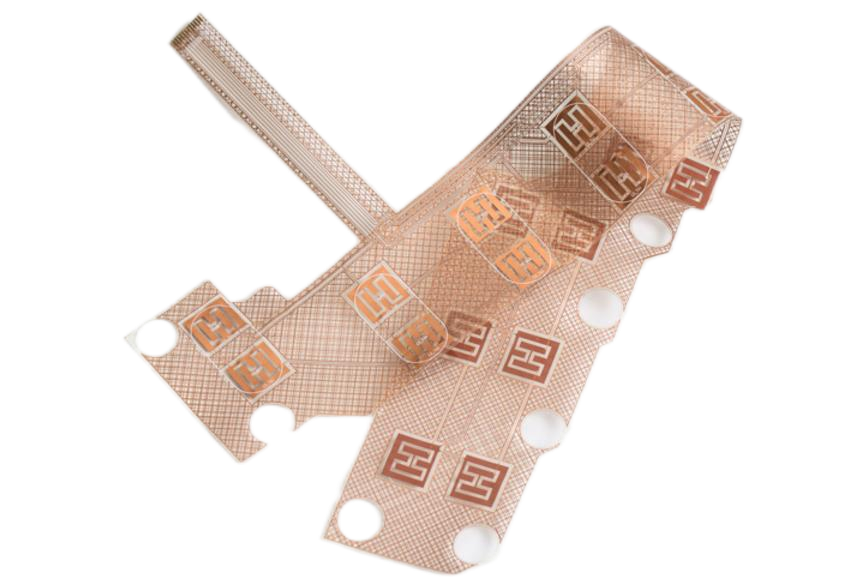
Considerations Regarding Tensile Strength in FPC Applications
1. Material Selection
The choice of materials for FPCs is a critical determinant of their tensile strength. At Shenzhen Huaruixin Electronics Co., Ltd., we meticulously select top - tier base materials. Polyimide (PI) is a preferred choice due to its outstanding tensile strength, high - temperature resistance, and excellent chemical stability. The thickness and composition of the conductive layers also significantly impact the overall tensile strength of the FPC. For applications with high - tensile - stress requirements, we may opt for thicker copper layers or use alloy conductors with enhanced mechanical properties. Additionally, we incorporate reinforcing materials, such as glass fibers or carbon nanotubes, into the FPC substrate to further improve its tensile strength.
2. Design Optimization
The design of the FPC plays a pivotal role in its ability to withstand tensile forces. We focus on several key design aspects, including trace routing, stress - relief features, and overall geometry. By ensuring that conductive traces are routed in a way that minimizes stress concentrations, such as avoiding sharp corners and narrow necks, we can enhance the FPC's tensile strength. Incorporating rounded corners and smooth bends in the FPC design helps distribute tensile forces more evenly. We also use stress - relief pads and vias strategically placed at critical points to dissipate stress. In addition, the use of multi - layer FPC designs with proper layer - to - layer alignment can improve the overall mechanical robustness of the FPC under tensile loading.
3. Testing and Quality Control
To guarantee that our FPC products meet the exacting tensile - strength standards, we implement rigorous testing and quality - control procedures. We utilize state - of - the - art testing equipment to measure the tensile strength of FPC samples under a variety of conditions, including different temperatures, humidity levels, and cyclic loading profiles. These tests simulate real - world operating conditions to identify any potential weaknesses in the FPC design or manufacturing process. By subjecting FPC samples to accelerated life - testing, we can predict their long - term performance and make necessary improvements before mass production. Our comprehensive quality - control system ensures that every FPC leaving our facility meets the highest standards of tensile strength and overall reliability.
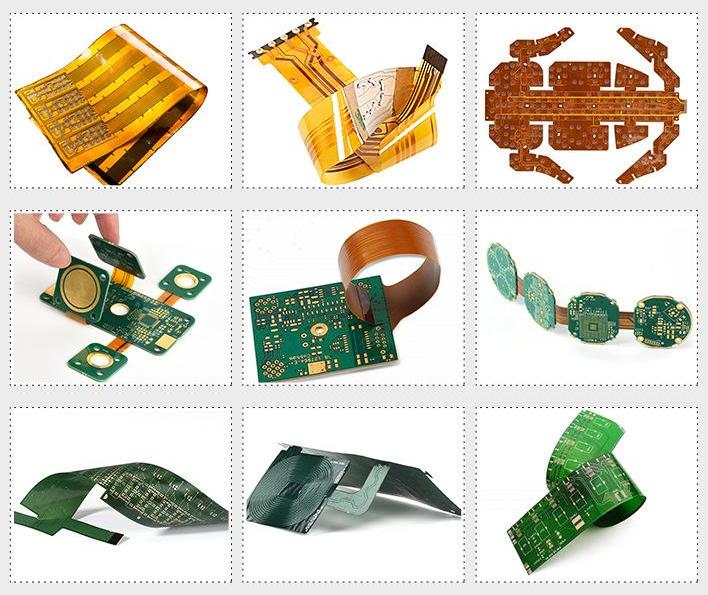
Tensile strength is an irreplaceable performance parameter for flexible FPC products across a broad spectrum of applications. At Shenzhen Huaruixin Electronics Co., Ltd., we are unwavering in our commitment to delivering high - quality FPC products with exceptional tensile strength. Through meticulous material selection, innovative design optimization, and stringent testing and quality - control measures, we ensure that our FPCs can meet the most demanding requirements of various industries. We cordially invite new and existing partners to engage in dialogue and collaboration with us. We firmly believe that the exchange of ideas and expertise is the catalyst for continuous innovation and advancement in the field of flexible printed circuits.

Let’s talk! We’ll provide the perfect solution for you!
-
 Huaruixin Electronics mainly produces printed circuit boards as the core business, to provide customers with one-stop solutions for FPC/PCB production, components sourcing and Assembly.
Huaruixin Electronics mainly produces printed circuit boards as the core business, to provide customers with one-stop solutions for FPC/PCB production, components sourcing and Assembly. - WHAT WE DO — PCB Design Solutions — Flex PCB Production — Components Sourcing — FPC&PCB Assembly
- PRODUCTS — Single Sided Flexible Circuits — Double Sided Flexible Circuits — Multilayer Flexible Cirucits — Rigid-Flex Circuits — FPC Assembly — PCB Assembly
- CAPABILITY — FPC Capability — Rigid-Flex Capability — PCB Capability — Assembly Capability
- Copyright © 2024 Shenzhen Huaruixin Electronics Co., Ltd. All Rights Reserved.
- Design By BONTOP

